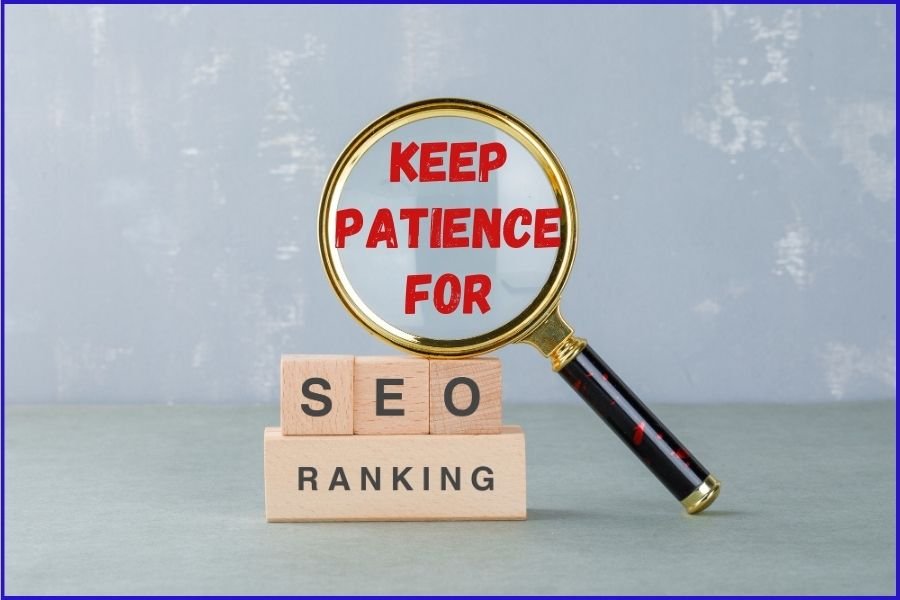Revolutionizing Retail: Unleashing the Power of Social Media Marketing to Overcome Challenges and Drive Success
Introduction
The retail landscape is undergoing a paradigm shift with the advent of social media marketing (SMM). This introduction sets the stage for exploring how businesses in the retail sector are revolutionizing their strategies to overcome challenges and achieve unprecedented success. Social Media Marketing, the focal point of this discussion, emerges as a potent tool reshaping the retail narrative. This section will provide a glimpse into the transformative power of SMM and its role in driving the evolution of retail strategies.
Brief overview of the retail industry
The retail industry serves as the economic backbone, providing consumers with access to a wide array of products and services. This sector encompasses diverse formats, ranging from brick-and-mortar stores to e-commerce platforms. Retailers operate within a competitive landscape where consumer behavior, market trends, and technological advancements continually shape the industry’s dynamics.
Traditionally, retail involved physical storefronts and traditional advertising channels. However, with the advent of e-commerce, the industry has undergone a profound transformation. E-commerce platforms have disrupted traditional retail models, offering consumers the convenience of shopping from the comfort of their homes. This shift has compelled traditional retailers to adapt and embrace digital strategies to stay relevant and competitive.
Challenges in the retail industry include evolving consumer preferences, intense competition, supply chain complexities, and the need to seamlessly integrate online and offline channels. As retailers navigate these challenges, social media marketing emerges as a strategic tool to not only address these issues but also to enhance brand visibility, engage customers, and drive sales.
Growing significance of Social Media Marketing (SMM)
Social Media Marketing (SMM) has evolved into a dynamic and indispensable tool for businesses, especially in the retail sector. The increasing influence of social media platforms, such as Facebook, Instagram, Twitter, and LinkedIn, has created unparalleled opportunities for retailers to connect with their target audience. The significance of SMM lies in its ability to reach a vast and diverse consumer base, fostering engagement and brand loyalty.
In recent years, the growing prevalence of social media usage has transformed how consumers discover, evaluate, and make purchasing decisions. Retailers are harnessing the power of platforms to create immersive brand experiences, share engaging content, and leverage user-generated content. The real-time nature of social media allows for instant communication and feedback, enabling retailers to adapt their strategies swiftly.
Moreover, the integration of social commerce features on platforms has further amplified the impact of SMM in the retail landscape. With the ability to showcase products, facilitate seamless transactions, and encourage user-generated reviews, social media has become a dynamic sales channel. As a result, retailers are increasingly recognizing the importance of incorporating SMM into their overall marketing strategies to stay competitive in the ever-evolving retail landscape.
Pain Points in Retail SMM
In the landscape of retail Social Media Marketing (SMM), numerous challenges can impede the smooth functioning of a business. One of the primary pain points is the ever-changing algorithms of social media platforms. These algorithms dictate the visibility of content, and staying abreast of these changes requires constant adaptation and refinement of marketing strategies.
Another challenge is the saturation of content on social media channels. The sheer volume of information bombarding users can lead to content fatigue, making it difficult for retailers to capture and maintain the attention of their target audience. This necessitates a keen understanding of audience preferences and a creative approach to content creation.
Moreover, managing customer feedback and reviews poses a significant challenge. Negative reviews can spread rapidly, affecting the brand’s reputation. Handling these issues promptly and effectively is crucial to mitigate potential damage and maintain a positive online presence.
Lastly, the return on investment (ROI) in SMM can be elusive. Measuring the impact of social media efforts on sales and brand awareness requires sophisticated analytics, and many retailers struggle to establish clear correlations between their social media activities and tangible business outcomes.
Solutions to Retail SMM Pain Points
Social Media Marketing (SMM) has become an integral part of the retail landscape, but it’s not without its challenges. Addressing these pain points is crucial for leveraging the true power of social media in retail. One common challenge is the difficulty in measuring ROI and attributing sales directly to social media efforts. To overcome this, retailers can implement advanced analytics tools that provide insights into customer behavior and conversion rates from different social media channels. Additionally, investing in social listening tools can help businesses stay attuned to customer sentiments and preferences, enabling them to adapt their strategies accordingly.
Another significant pain point is the need for a consistent brand image across various social platforms. Retailers can implement a unified brand strategy, ensuring that the tone, visuals, and messaging align seamlessly across all social channels. Automation tools can play a vital role in maintaining consistency while saving time and resources.
Furthermore, managing customer inquiries and feedback can be challenging on social media. Retailers can deploy chatbots and AI-driven customer service solutions to streamline the communication process, providing quick and personalized responses to customer queries.
Enhanced Targeting
Effective targeting is a cornerstone of successful social media marketing. Retailers can harness the power of data analytics to understand their target audience better and create buyer personas. Social media platforms offer advanced targeting options, allowing retailers to tailor their content to specific demographics, interests, and behaviors.
Utilizing retargeting strategies is another way to enhance targeting. By identifying users who have previously engaged with the brand or visited the website, retailers can create personalized advertisements to rekindle their interest and encourage conversions.
Moreover, incorporating geotargeting can be particularly powerful for retail businesses with physical stores. This strategy enables retailers to reach potential customers based on their location, offering targeted promotions and incentives to drive foot traffic.
Content Strategy
A robust content strategy is fundamental for successful social media marketing in the retail sector. To capture and retain the attention of the audience, retailers should focus on creating engaging and shareable content. Visual content, such as high-quality images and videos showcasing products in real-life scenarios, can significantly enhance user engagement.
Utilizing user-generated content is another effective strategy. Encouraging customers to share their experiences with products and services through hashtags and contests not only fosters a sense of community but also provides authentic endorsements for the brand.
Social Media Advertising
Social media platforms offer robust advertising opportunities, and understanding how to leverage them is crucial for retail success. This section explores the diverse landscape of social media advertising and how retailers can harness its power.
1. Targeted Ads: Crafting targeted ads ensures that content reaches the intended audience. Leveraging user data, demographics, and interests allows retailers to create highly personalized and effective advertisements.
2. Ad Formats: Each social media platform offers various ad formats. Understanding the strengths of carousel ads, video ads, and sponsored posts helps retailers choose the most suitable format for their objectives.
3. Budget Optimization: Managing advertising budgets is essential. Through continuous monitoring, A/B testing, and leveraging analytics, retailers can optimize their ad spend for maximum impact.
4. Influencer Collaborations: Partnering with influencers can amplify a retailer’s reach. Identifying influencers aligned with the brand and creating authentic collaborations can significantly enhance the effectiveness of social media advertising.
Benefits of Social Media Marketing in Retail
Social Media Marketing (SMM) has emerged as a powerful tool for retailers, offering a multitude of benefits that contribute to business growth and success. Here are some key advantages of incorporating social media into retail marketing strategies:
1. Increased Brand Visibility and Awareness: SMM provides a platform for retailers to showcase their products and brand personality to a vast audience. By consistently sharing engaging content and leveraging targeted advertising, retailers can enhance brand visibility, leading to increased awareness and recognition among potential customers.
2.Enhanced Customer Engagement: Through social media, retailers can actively engage with their audience by responding to comments, addressing concerns, and participating in conversations. This two-way communication fosters a sense of community, loyalty, and trust, ultimately driving customer retention and advocacy.
3. Targeted Advertising and Personalization: Social media platforms offer sophisticated targeting options, allowing retailers to tailor their advertising to specific demographics, interests, and behaviors. This level of personalization ensures that marketing messages resonate with the right audience, increasing the likelihood of conversions.
4. Real-time Market Insights: By monitoring social media trends and interactions, retailers can gain valuable real-time insights into consumer preferences, opinions, and market trends. This data can inform product development, marketing strategies, and overall business decision-making, helping retailers stay agile in a rapidly evolving market.
5. Cost-effective Marketing: Compared to traditional advertising channels, SMM often provides a cost-effective way for retailers to reach a large audience. The ability to set budgets, track performance metrics, and adjust strategies in real-time enhances the efficiency of marketing spend, maximizing the return on investment.
Conclusion
In conclusion, the transformative impact of social media marketing on revolutionizing retail cannot be overstated. Revolutionizing Retail: Unleashing the Power of Social Media Marketing to Overcome Challenges and Drive Success encapsulates the essence of the paradigm shift brought about by leveraging the dynamic capabilities of social media platforms. Social Media Marketing (SMM) emerges as the linchpin, providing retailers with unprecedented opportunities to connect, engage, and influence their target audience. Amidst the myriad challenges faced by the retail industry, SMM emerges as a powerful catalyst for change, fostering brand visibility, customer loyalty, and driving sales.
In this landscape of digital evolution, RK Media Digital Marketing Agency stands as a beacon of expertise and innovation. Their commitment to harnessing the potential of social media marketing has not only addressed challenges but has propelled businesses toward unparalleled success. Through strategic campaigns, data-driven insights, and a keen understanding of market dynamics, RK Media has exemplified how Social Media Marketing can be harnessed as a formidable force for achieving retail excellence. As we navigate the future of retail, it is clear that the synergy between revolutionary ideas, dynamic strategies, and the prowess of RK Media Digital Marketing Agency will continue to shape a retail landscape where success is not just envisioned but realized.
FAQs
Q1. How has social media marketing (SMM) transformed the retail industry?
Answer: Social Media Marketing has revolutionized retail by providing a dynamic platform for businesses to connect with their target audience. It has reshaped strategies, addressing challenges like evolving consumer preferences and competition, enhancing brand visibility, engagement, and driving sales.
Q2. What challenges does the retail industry face, and how does SMM help overcome them?
Answer: Challenges include evolving consumer preferences, competition, and integrating online and offline channels. SMM addresses these by fostering engagement, providing real-time communication, and adapting strategies swiftly. It enhances brand visibility, engages customers, and contributes to overcoming industry challenges.
Q3. What are the pain points in Retail SMM, and how can businesses address them?
Answer: Pain points include measuring ROI, consistent brand image across platforms, and managing customer inquiries. Solutions involve using advanced analytics, social listening tools, unified brand strategies, and deploying chatbots for efficient communication.
Q4. How can retailers enhance targeting through SMM?
Answer: Retailers can enhance targeting by utilizing data analytics to understand their audience, creating buyer personas, and utilizing advanced targeting options on social media platforms. Retargeting, geotargeting, and personalized content help tailor marketing efforts to specific demographics, interests, and behaviors.
Q5. What are the key benefits of incorporating SMM into retail marketing strategies?
Answer: Key benefits include increased brand visibility, enhanced customer engagement, targeted advertising and personalization, real-time market insights, and cost-effective marketing. SMM provides a platform for showcasing products, fostering community, and gaining valuable insights, contributing to business growth and success.
Image Reference: Freepik
Disclaimer: All trademarks, logos, and brand names are the property of their respective owners. All company, product, and service names used in this website are for identification purposes only. Use of these names, trademarks, and brands does not imply endorsement.

















